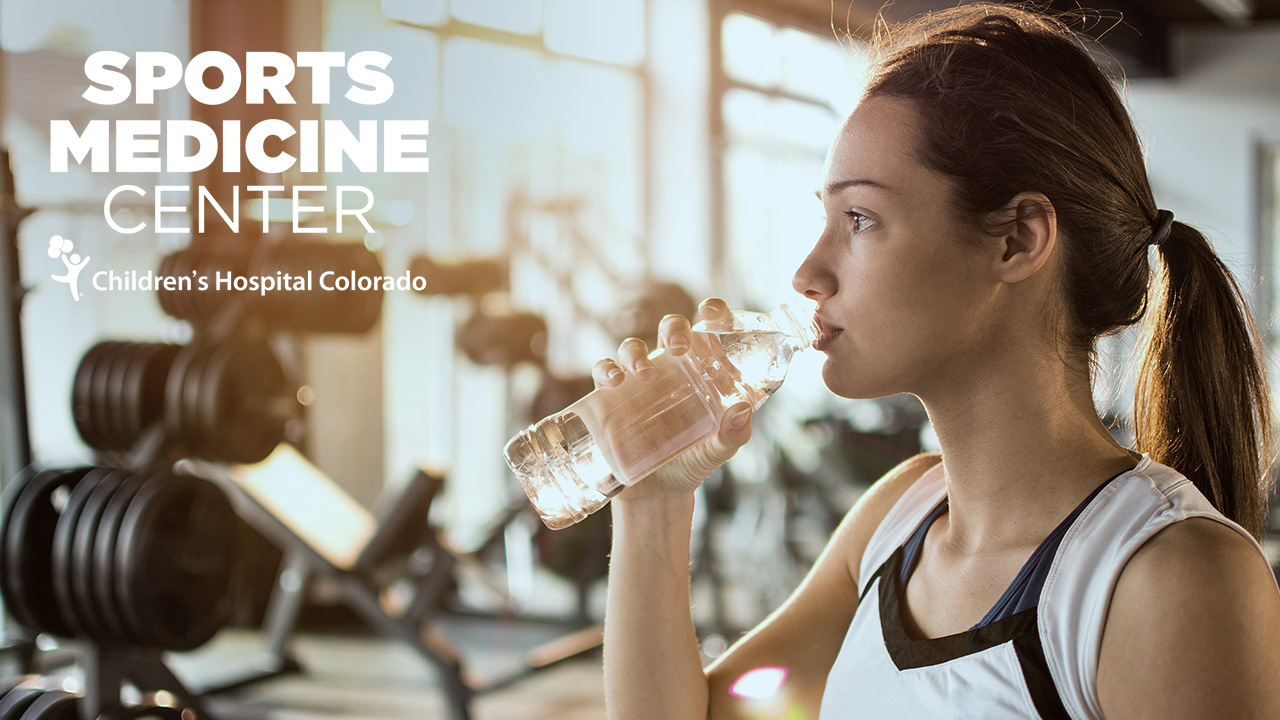Supplements promise to make young athletes faster, leaner, stronger and healthier. But what do we really know about that promise when it comes to the safety and efficacy of supplements? Are they really the best way for kids to perform better? Our experts at Children's Hospital Colorado share their insights.
As a sports medicine physician, I frequently get asked by patients and parents about the safety and efficacy of sports nutrition products. Sports supplements are a $20 billion industry; people are looking for that magic pill or powder to make us lean mean muscle machines.
And so we want to know… Are any of the supplements on the market unsafe?
Do I need to take a daily multi-vitamin? Which products will make me stronger, faster, leaner?
The reality is that there isn’t a definitive answer. Many people, including physicians and scientists, don’t agree on this topic. But in searching for my own answers for patients, I have certainly arrived at my own strong opinions on the matter.
Q: Are any of the supplements on the market unsafe?
A: Yes. The question is… which ones? In 2009, Sports Illustrated published a fascinating article on the safety of sports supplements, “What you don’t know might kill you,” highlighting the fact that the supplement industry is highly unregulated without standards for safety or efficacy.
The Dietary Supplement Health and Education Act of 1994 (DSHEA) allows supplement manufacturers to make health claims regarding the effect of products on body structure or function, although they cannot make restorative claims to ‘‘diagnose, mitigate, treat, cure, or prevent’’ a precise disease or medical condition.
And in 2003, the US/FDA Task Force on Consumer Health & Information on Better Nutrition established the requirement that industry manufacturers must investigate the identity, strength, and purity of their supplement products but once again does not require them to prove efficacy or safety.
So what does this mean for consumers? Frankly, you don’t know if the product you are buying is safe, contains contaminants that are dangerous or illegal, has unknown side effects, etc. For elite and competitive athletes, contamination with illegal or banned substances may mean disqualification from competition or from their league.
My opinion: stick to what you know will work and is safe, such as a healthy diet, proper rest, and focused training.
Q: Should I take a daily multi-vitamin?
A: Most of us get the appropriate levels of vitamins and minerals from the typical daily diet. As long as you are eating a varied diet with a rainbow of colors, you are likely ingesting all you need. However, there are a few exceptions.
Competitive athletes who train at a higher level and have increased energy expenditure may benefit from the added calcium, iron, zinc, and vitamins. Likewise, people who are at risk of a nutrient deficiency may also benefit, such as vegetarians/vegans, people with food allergies or other dietary restrictions, or athletes overcoming illness or injury.
Q: Which products will make me stronger, faster, leaner?
A: While we know certain products may improve the appearance of your body or improve your athletic performance, the reality is that most are unsafe, illegal, or banned by major sports governing agencies. This would include anabolic steroids, pro-hormones (androstenedione, DHEA), and ephedrine.
While caffeine is legal and has been shown to have beneficial effects as a stimulant on aerobic activity and decreased perception of effort, it is restricted by the NCAA and International Olympic Committee above certain levels. And the American Academy of Pediatrics does not recommend any caffeine consumption in youth less than 18 years old.
Research has shown that protein powders are ineffective, as are amino acid supplements. You are better off eating adequate but not excessive protein in your normal diet. Creatine, if pure in form, is the only legal product proven to increase muscle mass and increase exercise performance in short repetitive bouts of high intensity exercise (ie: sprinting, weightlifting, not distance running).
However, this once again takes us back to the question of supplement safety.
Even these presumably benign, over-the-counter products such as protein powders and creatine supplements have been shown to contain unsafe contaminants. Do you really want to ingest these products for the remote possibility it will improve your performance, at the risk of also ingesting mercury, lead, pro-hormones, or anabolic steroids? My answer is no. If you want to be stronger, faster, leaner, I recommend eating a varied diet with a healthy mix of protein, carbohydrates, and fats, training harder, and watching your caloric intake.
Learn more about sports nutrition.

